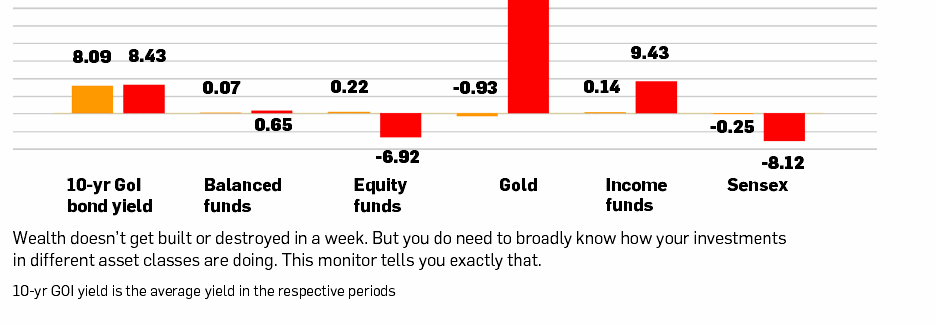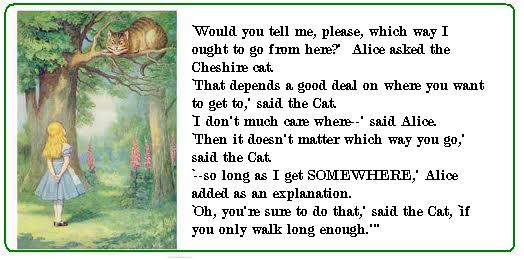In our earlier article Beginner to Investing we tried to answer our reader’s query who is beginner to investing. We discussed about how Starting Early allows one to harness the power of compounding, one needs to know oneself also understand the external factors affecting different investment products. In this article we shall try to expand on various approaches used for investing, having a plan , understanding different kind of investment products and irrational behavior of investors.
Table of Contents
Various approaches
Their are plethora of investment options and the marketeers blandishments confuse you, the best way is to sit and work out a plan (with or without help of financial adviser.). You should be financially prepared not only for life’s predictable big events like your wedding, buying a house, educating your children, but also for your retirement years and sudden and unexpected bad news such as losing your job, salary cut etc.
Investing literature suggests various approaches such as asset allocation or diversification, life-stage, goal based, core-and-satellite, value based investing etc or a mix of these. Overview of these approaches(each of them are a topic in itself and we shall cover them sometime) are given below
Diversification is the spreading investment over a range of asset classes(fixed income like Fixed Deposit, Post Office), Stocks, Gold, Real Estate) industry sectors(FMCG, telecom) and regions(domestic, international), with the aim of reducing risk. One should take care that Diversification does not become diworseification. This means investing in various assets fixed income
Life Stage based investing: The various stages in an investor life are as follows:
- Young and Carefree: those in their early to late 20s.
- Making Commitments: those in their late 20s to mid-30s.
- Young Families: for those in the 35-50 age bracket.
- Making Choices: broadly of 50 to 65 years of age
- In Retirement: for those of 65 and beyond.
When you’re young, taking on more investment risk for a potentially higher return can make sense as you have more time to recover from market dips. Later in life and closer to retirement, protecting your savings can become more important. So investments are based on the stage one is in for example: invest more in equities when young and fixed income instruments as one approaches retirement. For example Business Today articles in May 2012 talked about When You Begin to Earn , When The Baby Arrives,When You Retire
Goal based investing: It belives in When you don’t have goals or targets, it’s easy to digress. So set up goals and invest according to them. Raagvamdatt:Goal Based Investing talks about it in detail. This is also discussed in book Monical Halan’s(of livemint) Seven Steps to Freedom. This book is recommended for reading in our article Personal Finance Books For Adults And Young Adults. The goal based investing can be divided into following steps
- Think of major events in your life which would have a significant financial implication, and for which you would like to save.
- Find out the cost of achieving these goals today.
- Determine how far away these goals are from today (in years).
- Determine the cost of achieving these goals at the target time using an
approximate but conservative rate of inflation. - Determine the after-tax rate of return you can achieve when you invest today.
- Arrive at the per-year and per-month investment necessary for each goal,
if needed. - Start investing for these goals!
Understanding Investment Vehicles
There are various kinds of investment products such as Real Estate, Equity, Mutual Funds, Fixed Deposits, Post Office etc. Investment products are often called investment vehicles. As a vehicle takes you from point A to point B. So, an investment vehicle simply takes you from where you are financially to where you want to be, sometime in the future, financially. There are many different investment products, or vehicles, because there are many different people with many different investment ‘needs’, just as a family with five children has different needs than a single person or a farmer. Different vehicles fill different needs – to go from Bombay to Kolkata flight is the fastest option but to go from Netaji Subhash Chandra airport in Kolkata to the hotel a taxi or bus is appropriate. Understanding the various investment options helps one in realizing whether one should invest in it or not. Information that one can seek is: Returns on various investment products over time frame weekly(shown in orange) yearly(shown in red), or information about the product class ex: post office.
A financial plan
As explained in Investing:Think about Liquidity,Safety,Returns,Risk,Tax A true investor has a plan and has multiple options as to investment vehicles and procedures. Any investment product should be bought with following things in mind: Liquidity, Safety, Returns and Taxation.
One should consider the debt such as credit card, personal loan etc and insurance also while drawing up an investment plan. Credit card debt is an expensive debt and must be paid. Insurance offers protection from the bumps in life, it is like helmet to protect the driver in case of mishap.
It depends on you whether you make plan yourself or get a financial advisor. As it is your hard-earned money you have to take responsibility for it even if you get the financial advisor. As explained in Bemoneyaware:Mis-Selling or Mis-Buying: It’s My Money, My Responsibility. Be ready to learn, makes mistakes, refine your plan at times even change it.
Procrastination and not giving priority to financial goals and investment plans may turn out to be costliest mistakes that one can make. Just like No Decision is a Decision, Not making a plan is also a plan, you would reach somewhere maybe not the destination you want. I would like share conversation between Cheschire Cat and Alice from the book Alice in Wonderland
Behavioral Economics
“Success in investing doesn’t correlate with I.Q. once you’re above the level of 25. Once you have ordinary intelligence, what you need is the temperament to control the urges that get other people into trouble in investing.”-Warren Buffet
Human beings are not rational. Psychology plays an important role in people’s behavior even with respect to financial markets. Let’s see some examples from Outlookmoney:Escape the wealth rut(Jul 2011):
You are in a mall playing the Wheel of Fortune, the minimum ticket cost being Rs. 5,000 and the prize money being Rs. 1 lakh. Your lucky number is 77 and recently two winners have won the jackpot by spinning this number. What will you do?
- Definitely play the jackpot
- Consult your astrologer before you play
- Cap your losses by putting the minimum amount at stake
- Analyse the chances of winning and then take a decision
OR
You plan to buy a new car with proceeds from selling your old car. Last month, you were offered Rs. 1 lakh for your old car, but due to a downturn in the car market, you can now get only Rs. 70,000. What will you do?
- Postpone the buy till you find a buyer who can offer you Rs. 1 lakh
- Buy the new car and gift the old car to your spouse
- Buy the new car and postpone the sale till the market revives
- Sell the old car at the current price and buy the new car
The study of economic which deals with is called Behavioral Economics. It is the combination of psychology and economics that investigates how irrational we humans can be. If offers insight into the surprising ways in which our emotions and thought patterns guide us toward economic decisions. These behavioral anomalies include Mental Accounting, Anchoring, Overconfidence, use of Mental Heuristics, Loss Aversion, Sunk Cost Fallacy, Decision Paralysis, Endowment Effect, Winner’s Curse, and many more. In India Parag Parikh is famous for Behavioral Economic, he has written books Value Investing and Behavioral Finance, Stocks to Riches. His website has great information on Introduction,Understanding Behavioral Biases,Behavioral Finance tutorials
What approach do you follow while investing? Which products do you prefer and why? Do you believe in Behavioral Economics?







I’m still looking for stars and bars at the Texas Capitol I can’t find it.